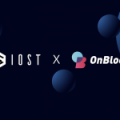Over the past ten years, I’ve been on a journey to create an interactive, patented curriculum that combines the power of math with the joy of music. In our program Make Music Count, students from elementary to high school get hands-on experience solving math equations while learning how to play the piano. Since launching, I’ve seen the need, desire and impact: Make Music Count is in over 400 schools with 60,000 registered students and 20,000+ downloads on iOS and Android devices.
And today, I am excited to share a new milestone: we have partnered with IBM to use their cutting-edge artificial intelligence (AI) tools to help personalize students’ educational journeys, empowering students to experience the real-time applications of learning.
Creating the foundational tools for student success
Make Music Count was born out of the understanding and realization that math is a foundational tool for all children’s educational success. Too often, math instruction can be a one-size fits all approach, which can end with students thinking that “math is boring.” Our multidisciplinary method builds engagement in math by centering play in the student’s learning process.
We designed Make Music Count to specifically help second through twelfth-grade students solve math equations. Every time a student gets a math problem right, the answer unveils a musical note. Once all questions in a given set of problems are answered, the corresponding notes are highlighted on a virtual piano, enabling students to play their answers on a virtual keyboard while the original song streams in parallel. As a result, we’ve seen students’ confidence and performance in mathematics increase all while playing—and learning—the piano.
And now, IBM has helped us take our platform to the next level by embedding IBM watsonx Assistant and IBM Watson Discovery into Make Music Count’s web application. With this integration, we’re able to use AI to customize lesson plans around each student’s unique needs, enabling students to ask questions and providing real-time math support for students through chat.
Seamless collaboration inside and outside the classroom
Early on, we identified that math instruction needs to include the experiences and cultures of kids in class. We saw that students were getting left behind in their math studies, in large part because they didn’t see themselves reflected in the curriculum. As we began developing Make Music Count, conversation was at the core. We found that creating opportunities for dialogue empowered students to take ownership over their own education. On average, we see an average increase of 28% in a student’s score from pre- to post-test, and our app sees 100% engagement during each student’s session, as students are self-motivated to complete each session in order to experience the song in full.
To help deliver on this, our team built a virtual assistant to coordinate discussions among multiple students. Now teachers within our partner school districts are given time back for productivity because students are able to navigate through our supplemental STEAM and SEL curriculum on their own at their own pace.
Teachers and tutors can now spend more time personalizing their lessons with students in-person, while the chat function can help get students up-and-running and ask more basic questions. The AI will learn question patterns over time, and we are excited about the insights it will compile to help us guide our curriculum in the future.
Personalizing an AI strategy that fit our business
I was cautious at first about what an AI investment would look like, as an AI strategy and its business execution can seem daunting, but IBM put my mind at ease and made the entire process seamless and helped educate me about how watsonx can help startups like ours. I can now see the good that AI can do for classrooms, which is an oft-overlooked aspect of technology in the classroom.
Our IT team needed help on the back end with data management and navigating user insights so we can keep fine-tuning our platform and resources. The IBM team helped us learn about and implement the IBM Watson Discovery platform, and it was not a huge lift. This milestone is a place where we can start and grow, and the AI tool is going to learn as we use it with our students helping our team transition from only being supplemental to a core curriculum math learning platform.
By co-creating with IBM Ecosystem Engineering, we can save capital around our customer support headcount.
Making music count for all (and for the future)
Accessibility has always been an emphasis for our Atlanta-based team. We believe that every student should feel included during instruction and welcomed to the opportunity of being successful in the classroom. Our platform continues to serve as a supplemental resource for math classes, music classes and intervention spaces, as well as enrichment for after-school programs. We look forward to continuing to scale Make Music Count with school districts across the United States, and even around the globe.
We also see exciting opportunities to scale Make Music Count into children’s hospitals, bringing both learning and fun into the hands of those who need them. IBM already has a presence with many hospital systems and can help partner with us to find new collaboration opportunities. Whether you prefer a laptop, phone or tablet, try out Make Music Count and make math and music fun by playing your favorite songs on the (mathematical) piano.
Learn how to start building with IBM
Explore how Make Music Count can inspire your students




